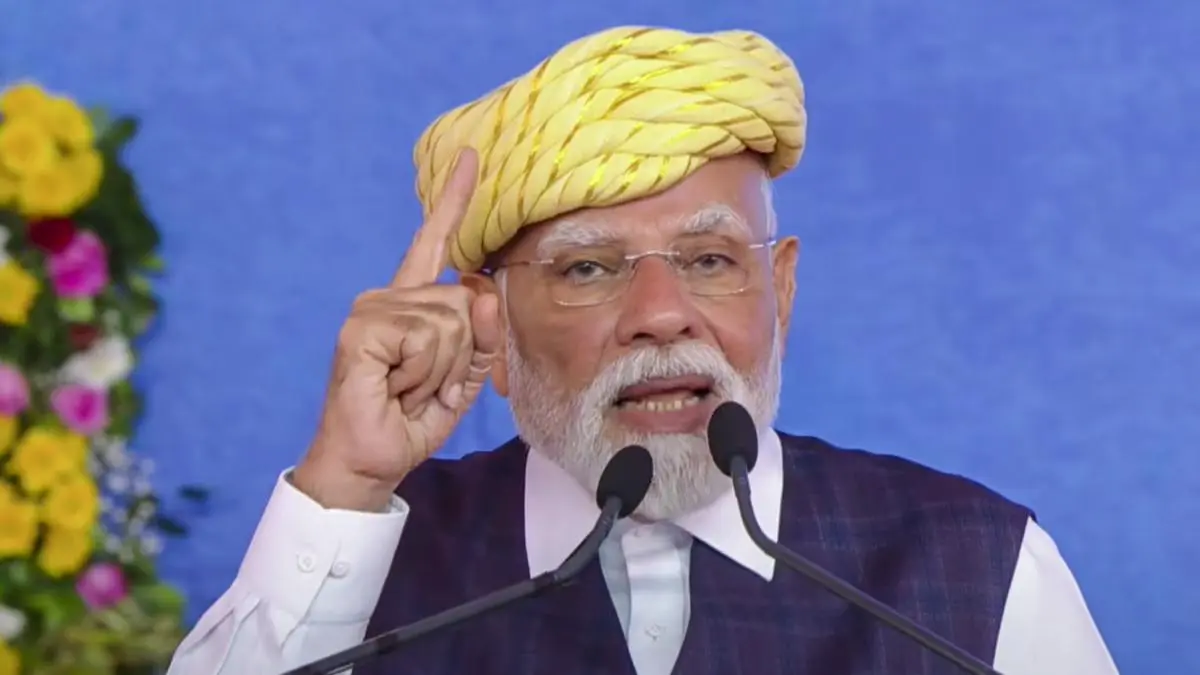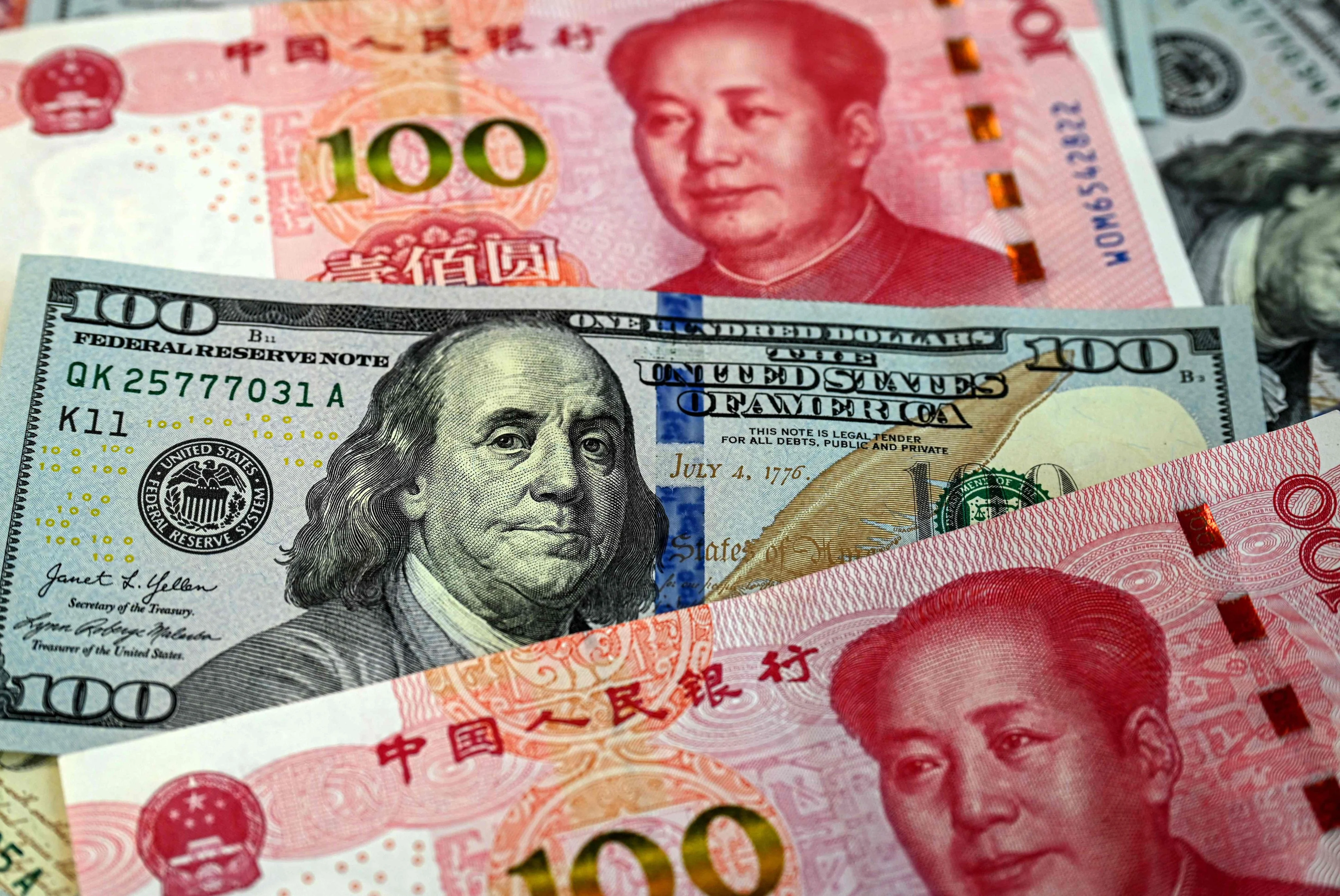PM Modi: India pays $75 bn to foreign shipping firms, reviving domestic shipbuilding a priority
By Avinash Nair
Copyright thehindubusinessline

Blaming his political rivals for the poor shipbuilding prowess of the country, Prime Minister Narendra Modi on Saturday said India pays USD 75 billion in lease to foreign shipping companies — an amount which is almost equal to the country’s defence budget — for shipping services provided every year.
“Shipping sector is the biggest example of the loss caused to the nation by the (Congress party). India has been a maritime power of the world for several centuries. We used to be the biggest centre of shipbuilding in the world. The vessels constructed in the coastal states of the country, used to a part of global commerce and trade. Just 50 years ago, we used to operate vessels made in India. During that time, about 40 percent of the import and exports used to carried out using vessels made in the country. The shipping sector too fell a victim of the bad policies of the Congress-governments. Instead of focusing on shipbuilding in India, they preferred leasing foreign vessels. Due to this the shipbuilding ecosystem shut down. We were forced to rely on foreign vessels. The outcome of this is that the usage of Indian made vessels declined to just five percent. It means we became depended on foreign vessels for 95 percent of our trade. We had to incur a huge loss due to this,” PM Modi said while delivering a public address at Bhavnagar in Gujarat.
Dependence on foreign vessels
“Every year India pays USD 75 billion —- which is about ₹6 lakh crore — as lease to foreign shipping companies for providing shipping services. This is almost equal to India’s defence budget,” he said while presenting figures to the audience present. “Just imagine the amount of money we would have paid as lease to other countries. Lakhs of jobs have been created in other countries with our money. Think about it. If a small amount of this would have invested in our shipping industry, then the world would have been using our vessels and we would have been earning crores from shipping services,” Modi said, adding that, be it a semiconductor chip or a ship, they should be manufactured in India.
Economic multiplier effect
Stating that his government will be pumping in more than ₹70,000 crore in coming years in helping Indian shipyards adopt modern technology and improve design and quality, Modi said the shipbuilding industry has a multiplier effect on the economy and in creation of jobs. “Shipbuilding is considered the mother of all industries across the world. The industries related to steel, machinery, electronics, textiles, paints IT systems get support from the shipping industry. The MSMEs also benefit,” he added
In the last 10-odd years, six of the biggest shipyards in Gujarat have closed down. This includes two shipyards belonging to ABG Shipyard — at Magdalla and Dahej, shipyard at Pipavav, two state-owned shipyards of Alcock Ashdown at Bhavnagar and Chanch (Amreli district). Though Swan Defence and Heavy Industries Ltd (SDHI) have taken over a “sick” Pipavav shipyard last year, most of Gujarat’s shipbuilding capacity of more than 5.4 lakh Deadweight Tonnage (DWT) continues to remain underutilised or shut. On Saturday, at PM Modi’s event, SDHI signed a ₹4,250 crore-worth MoU with the Gujarat Maritime Board (GMB) to modernise its shipyard, boost supply chains and build a sustainable maritime talent pipeline. This includes ₹3,500 crore for capacity expansion at the Pipavav shipyard, including slipway, jetties, additional cranes, block fabrication and dredging.
Reviving domestic shipbuilding
Talking about reforms carried out his government, PM Modi said, “India has been an expert in building large vessels. The next generation reforms will help restore the forgotten pride of the nation. In the last decade, we have inducted more than 40 ships and submarines in the Indian Navy. All of them have been made in India. INS Vikrant have also been made in India. The high quality steel needed for its construction was also made in India. This shows we have the ability and the skill.”
Infrastructure status and financial support
Reminding the audience of the steps taken by his government on Friday, PM said “infrastructure” status will be provided for construction of large vessels in India. “When any sector is accorded with the infrastructure-status, then it gets a lot benefits. The companies that are building large vessels can get easy loans from the banks and they will get rebate on the interest on these loans. They will also benefit from the advantages of infrastructure financing. Due to this decisions, the burden on these companies will lessen and they will be able to progress amid global competition,” he said.
Among the MoUs signed as part of the event, SDHI also signed a second MoU with Sagarmala Finance Corporation Limited (SMFCL) — India’s maritime-focused NBFC — under which the two parties will jointly explore projects, including newbuilds, ship repairs and ancillary maritime infrastructure for support under Maritime focused Equity Fund (MfEF). The MoU covers four strategic areas across technical & commercial evaluation, financing, project execution and ecosystem development to advance shipbuilding.
During the event, PM Modi also laid the foundation stone for Avaada’s 100 MW solar power project in Vadodara district. Spread across 350 acres and with a planned investment of ₹400 crore, the project is being implemented by Avaada GJ Solar and is expected to be commissioned by April 2026. The PM also inaugurated the company’s 280 MW solar power project at Surendranagar.
PM Modi also inaugurated Indian Oil’s Acrylics/Oxo-Alcohol plant at Gujarat Refinery, Vadodara which has been developed with an investment of Rs 5894 crore. The complex comprises an Acrylic Acid unit, Butyl Acrylate unit, N-Butanol unit, and a revamped Hydrogen Generation Unit. This state-of-the-art plant converts refinery byproduct propylene into high-value petrochemical products that were, until now, largely imported.
Published on September 20, 2025



